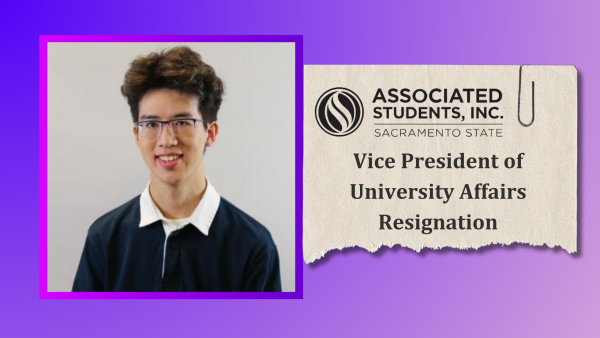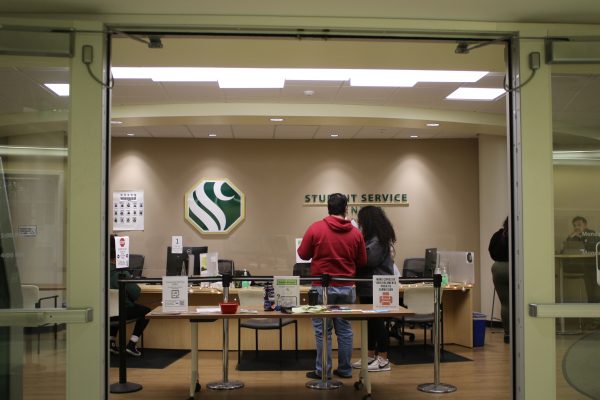Students invited to participate in lawsuit over tuition hikes
November 16, 2011
Approximately 175,000 students, including most Sacramento State students who enrolled for the fall 2009 semester, have received emails in the past month informing them of their potential involvement in a class-action lawsuit filed against the California State University Board of Trustees.
Keller v. Board of Trustees of the CSU, the case detailed in the email, is based on the fact that students enrolled in fall 2009 were billed for tuition and had to pay on another occasion when the price increased. The case also pertains to students who were in one of the graduate business programs at any CSU campus during the time, and had to pay fees on two occasions.
In the fall 2009 semester, the CSU system was hit with last-minute cuts from state support. The tuition was raised in response to the budget cuts, and students who had already paid tuition for that semester were charged an additional $336 (for full-time undergraduate students) based on the increased tuition price.
“Faced with an unprecedented drop in state support that caused a $584 million university budget shortfall, the CSU Board of Trustees increased undergraduate, credential and graduate student fees for the 2009-10 academic year as part of an overall budget action plan,” said Erik Fallis, CSU spokesman. “Additional elements of the plan included employee furloughs and workforce reductions; enrollment cuts, and additional cost-cutting measures on campuses.”
Tuition increases have a history of being challenged within the Superior Court of California. Another class-action lawsuit, Kashmiri v. Regents of the University of California, challenged increases posted by the UC system in spring and summer 2003. The student plaintiffs alleged the way the increases were billed indicated breach of contract.
In March 2006, the court ruled in favor of the plaintiffs. It was then taken to the California Court of Appeals, where it was ruled in 2007 that universities cannot increase fees after already billing students.
Attorney Danielle Leonard, who worked on the Kashmiri case, was approached by five students who believed the CSU system’s tuition billing in 2009 was similar, and wanted to file a lawsuit with the same theory.
Student plaintiffs involved in Keller v. Board of Trustees of the CSU allege the CSU breached its contracts with students about the price required for the fall 2009 term and violated the covenant of good faith and fair dealing.
Fallis said the CSU’s relation with students is unique in that it is statutory, not contractual – making the allegations invalid.
“It would be impossible to breach a contract,” Fallis said. “There is no contract between the university and the students.”
In August 2009, the Superior Court denied the plaintiff’s request for a preliminary injunction and temporary restraining order on tuition increases. Since then, the sides have been actively involved in the discovery process, which is a period of information sharing.
Leonard said cases like this “take a lot of time,” but remained confident of the prospect of victory given the history with Kashmiri v. Regents of the University of California.
“Obviously, we cannot predict what the court’s decision will be,” Leonard said. “However, we strongly believe that the plaintiffs will prevail in this case, as it’s exactly the same problem.”
Leonard reiterated the point is not to say, “universities should never raise fees,” but rather to defend a student’s right to have sufficient warning about increases in tuition.
“The take-home message from this is that students should be able to rely on the tuition price they are charged, and should be warned when increases will occur,” Leonard said. “The CSU did not do this properly.”
Fallis said the CSU had to take action when it did, and all of this is tied to the state funding reductions that came at the 11th hour.
“The circumstance that we faced did not allow for more warning than we provided,” Fallis said. “Our revised budget plan wasn’t adopted until July, which didn’t give the CSU time to provide a longer notice. If we did not make an immediate reaction, things would have only been worse. More courses and services would have been cut.”
If the plaintiffs succeed, students in 19 CSUs will receive refunds for the increased tuition and non-resident tuition for the fall 2009 term. Because of their different fee schedules, Cal Poly San Luis Obispo, Cal Poly Pomona, CSU Stanislaus and CSU East Bay are not subject to this case.
There are some exceptions to who can be included in the class: Students who received financial aid that offset the price of tuition; students who registered late and were never billed the separate increases and students who received statutory fee waivers are not considered part of the class.
“The ironic thing is – if the plaintiffs prevail in this lawsuit – tens of millions of dollars will be awarded to prior students (and their attorneys), and the burden will necessarily have to be shifted to current and future students either through a loss of classes and services or higher tuition fees,” Fallis said. “There is no additional CSU money to cover this hole.”
Students do not need to opt in to be included in the class, but in order to be excluded, notice of intention to opt out must be sent to [email protected].
Brett Johnson can be reached at [email protected]









































































































































